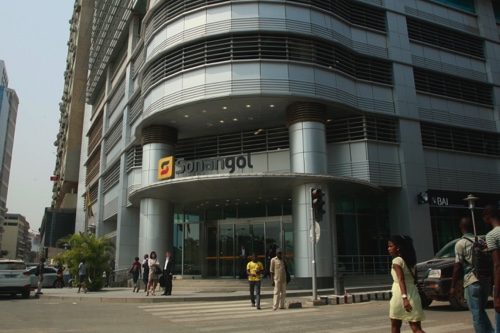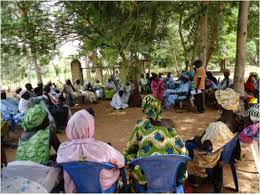Established in 1975, Antonio J. Silva Transportes e Logistica (AJS) is Angola’s leading full-time solutions and logistics Company in the transportation industry throughout the supply chain, supporting the country’s economy by providing integrated logistical services, transportation of goods, stock control, and storage.
In the last couple of years, AJS has recorded an increase in growth of nearly 50%. In 2015, AJS experienced a revenue increase of 10% which augments the previous year’s increase of 35%; it continued its expansion into additional Angolan provinces – Zaire (Soyo), Cuando Cubango, Cabinda, and Moxico (Luena).
AJS also got involved in the energy sector with a 10% investment on an oil block in the Congo basin. It ventured into the manufacturing sector, producing paper towels and toilet papers, as well as printing paper. Additionally, it now manufactures trucks and builds tanks for the transportation of petroleum products and other goods.
What could be the reason behind the stellar performance, expansion and the overall successes of AJS in Angola, particularly in last two years? This was the question Ehis Ayere of African Leadership Magazine had in mind when he sought this exclusive interview with Luis Silva, the CEO/Managing Director of AJS. Excerpts:
Findings have shown that AJS Transport, which is Angola’s leading full-service solutions and Logistics Company, has seen a growth of nearly 50% over the past two years. Kindly tell us about more about your company and the reason behind this stellar performance?
The growth of Antonio J. Silva Transportes e Logistica (AJS), in the transportation and logistics sector, is largely due to a market strategy that the company started 5 years ago. AJS recognized that there was a growing need for transportation and logistics throughout Angola and we planned to meet that need by starting new operations in a number of provinces, anchored in the largest cities in those provinces. This expansion has taken place in two phases. The first phase, which we initiated 5 years ago, included expansion into Benguela province (Lobito) and Huíla province (Lubango – Capital City)
Then, 2 years ago, continued our expansion into 4 additional provinces: Zaire Province (Soyo), Cuando Cubango Province (Menogue – Capital City), Moxico Province (Luena – Administrative Capital), and Cavinda Province.
The establishment of these new operations have contributed substantially to the 50% growth in the company.
Does the business environment and government in Angola in anyway support your growth?
Overall, the climate for business in Angola is very good. One of the most important factors contributing to the on-going growth in Angola is the government support for businesses, both large and small. There are a number of fiscal incentives in place, including tax abatements to support the growth of enterprises. At AJS, we have excellent relationships with the agencies that impact our business and we have found them to be very helpful and encouraging of our growth.
You have recently expanded into the petroleum sector with the acquisition of oil block; we are also aware of plans to move onto the exploration phase with investment estimated to be around $8million. Tell us about your involvement in the petroleum sector?
AJS was very pleased that the government asked us to participate in a seismic study for oil exploration in the Congo Basin. Currently, our involvement is at the level of research. AJS along with a number of other non-operator companies are licensed to fund the seismic research in Con6 Block. We were licensed to contribute 10 % ($8M) of the total costs of the research, which are estimated to be $80M in total. We expect the research and study phase of this operation to go on for at least a year.
What is your opinion about Angola’s petroleum sector in relation to other African countries?
Angola is the second largest oil producer in Africa, after Nigeria. However, Angola’s ability to export oil right now is much greater. In fact, Angola is the #1 exporter of oil (from Africa) to the United States, and no other country is positioned to take over that market share. Issues such as the oil embargo have hampered Nigeria’s efforts to export oil, which has put Angola in first place for exports to the U.S.
With your foray into the paper goods industry, it appears, your diversification drive is geared towards covering the major sectors in the economy. What informed your investment in this sector?
AJS took a look at the paper sector and conducted a broad market study on the availability and need for paper products in Angola. What we discovered is that there was a tremendous deficit in the market, with a much greater demand for paper products than there is supply. We decided to focus on “tissue” related products to start with, such as toilet paper and paper towels, and began importing these products for domestic use. Based on the market study we did, we have also found a need for Xerox- and copy paper, which we will begin importing soon.
A significant growth in Africa’s manufacturing is no doubt needed to spur growth and strengthen the African economy at large. What is your take on the Manufacturing industry in Africa?
African nations continue to have excellent prospects for growth in manufacturing. However, the most important challenge to this growth is the fact that most countries are continuing to import the raw materials needed as the basis of manufactured goods. For example, Agricultural products continue to be imported to support certain industries. The beer industry in Angola is completely dependent on imports of grains and cereals required to produce the finished product (beer). Importing these grains creates greater costs and makes the industry dependent on external producers to create their products.
The prospects for growth in the manufacturing, Africa imports raw materials for manufacturing. So right now Africa imports raw materials and needs to produce more of its own raw materials to move the manufacturing sector forward. For example, Angola is importing its agricultural products in the beer industry; they import all the grains and cereals needed for the industry. Across all the sectors, they import lots of raw materials.
Who is Luis Silva and what are some of your key success nuggets?
I believe that my personal success is the result of a number of factors. First and foremost, I was (and still am), tremendously influenced by my parents, who started AJS, to succeed. My parents taught me a lot about how to be successful in this business. Just the fact that I was basically raised in the business, and got to experience first-hand how things operate, has been very important for me personally.
In addition, my siblings and I had a strong work ethic instilled in us from an early age, which is tremendously important in order to grow a successful business. I found that success breeds success, and as I began succeeding in the business, that whetted my appetite for more. Second, the fact that Angola is experiencing tremendous growth is also important. At AJS, we have the vision to capitalize on that growth. My vision for the company, to diversify into many sectors that are important for Angola, and to contribute to the countries’ growth, is also an important part of what drives me to succeed every day.



